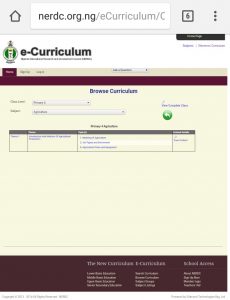A new report released on January 8, 2017 by the International Literacy Association (ILA) reveals wide gaps between what’s truly valuable (what’s important) to educators around the globe and what’s getting the most attention (what’s hot) from the media, policymakers and others in the field. The ILA 2018 What’s Hot in Literacy Report provides a snapshot of what 2,097 literacy professionals from 91 countries and territories – Nigeria inclusive – deem the most critical topics to advancing literacy worldwide.
EARLY LITERACY takes the No. 1 place as the most important topic in literacy. Many respondents noted the importance of exposing young children to books, words, stories, and more, early and often. Beyond early literacy, respondents talked about the importance of including families in literacy activities and events. Community organizations can help not only through formal partnerships but also by having a strong voice in the community that shows the relevancy of literacy in the workforce.
The survey asked respondents to rate 17 literacy-related topics in terms of what’s hot and what’s important. Topping the hot list for the second year in a row: Digital Literacy, a topic that dropped from No. 8 in 2017 to No. 13 in terms of importance. On the flip side, topics such as Access to Books and Content, Mother Tongue Literacy and Equity in Literacy Education ranked significantly higher in importance than they did heat. These gaps reflect the challenges of teaching in today’s world, such as a rise in racial, ethnic, and cultural diversity; a growing number of English learners; and an unequitable distribution of resources in classrooms— and illustrate a growing number of unmet needs in these areas. “We learned that many educators, working with increasingly diverse student bodies, do not have sufficient training, parental support or resources to respond to student needs,” said ILA Executive Director Marcie Craig Post. “This survey helps us to identify where more support is needed so we can provide solutions.” Respondents recognized positive early literacy experiences, family engagement and professional preparation and development as among the most critical factors for advancing literacy for all.
Respondents indicated not only that issues of both equity and access should be a higher priority, but many also remarked that schools bear the responsibility of providing equitable opportunities and resources for all students. According to 86% of respondents, Equity in Literacy Education is extremely or very important, placing it in the No. 2 spot. Also, access to Books and Content—giving students access to content and books that are relevant for all learners, for both pleasure and academic reading—is rated extremely or very important by 82% of all respondents. According to a 2016 UN report, in Nigeria children from poorest 20% homes have access to no books at home while their counterparts from richest 20% homes have access to an average of 19 books at home. Furthermore, according to @StatiSense there are just 316 public libraries in the country, that is an average of 9 libraries per state and less than one per local government authority, with an average of 1 library to 600,000 people in the country. Meanwhile, the country has 242 prisons, with 17 states out of the 36 states including the Federal Capital Territory – Abuja, having more prisons that libraries in the country.
We defined equity as ensuring all children get what they need not only in situations of poverty and limited resources but also regardless of academic proficiency, geographic remoteness, and any other barrier to school success.
One of the greatest predictors of lifelong success, early literacy experiences create the foundation for learning in all subject areas. Many respondents remarked on the importance of exposing young children to books, words, stories and more—early and often. Respondents also noted the importance of involving families and community-based organizations in these early literacy activities.
Early Literacy remains the No. 1 most important topic for the second year and ranks as the second hottest topic overall. And according to the UN report of 2016 attendance in early childhood education amongst the poorest 20% in Nigeria was 10% between 2005 – 2014, while amongst the richest 20% it was 84% during the same period. This data reflects the urgency that the government have to pay to the issues of early literacy and equity in early literacy, and this demands a review of the country’s 2013 National Policy on Education (p.4) that states that “Early Child Care and Development Education however is segmented into ages 0-4 years, situated in daycare or crèches, fully in the hands of the private sector and social development services…” if one of the specific goals of education in Nigeria is to be fulfilled, which as stated under Section 1, subsection 7a of the National Policy on Education is to “Ensure and sustain unfettered access and equity to education for the development of the individual”.
Economic status, culture, geography (especially in rural areas), and disability all affect an individual’s access to literacy development. There is not an equal playing field, and our governments do not provide supports necessary to overcome the disparities.
—Special Education Teacher, Canada
On Family Engagement, the ILA report states that 79% of respondents believe that it is very or extremely important. However, the 2016 UN report shows that adult support for learning from 2005 to 2014 amongst poorest 20% households in Nigeria was at an average of 48.2%, while amongst richest 20% households it was 88.9%. These data highlight the importance and need for the government to provide adequate literacy programs in schools and communities for children, particularly those from economically disadvantaged backgrounds. Also, traditional media outlets like radio and TV should be used in educating families on how to engage their children in reading.
Employing various strategies for differentiating instruction could be one very important way to solve the problem of illiteracy in my community.
—Researcher, Nigeria
Another important aspect of equitable education is ensuring teachers’ readiness to respond to their students’ unique literacy strengths and needs. Respondents expressed that improvement initiatives often focus too much on standards and not enough on the conditions of teaching and learning in schools. Results show a desire for more preparation and knowledge for wider support and involvement across communities.
The full survey findings are available in the ILA 2018 What’s Hot in Literacy Report, available at literacyworldwide.org/whatshot.
Part of this article was culled from the press release of the ILA on the survey findings.
Please, leave your thoughts on this post in the comment section and feel free to share the article with your contacts.
Thanks for taking out of your precious time to read my article/s!
If you like this post, kindly subscribe and/or follow me on Twitter @otukogbe and @EdusoundsNg or on Facebook at edusoundsng.




